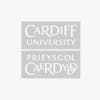The world's most sensitive table-top interferometric system - a miniature version of miles-long gravitational-wave detectors like LIGO - has completed its first science run.
The Quantum Enhanced Space-Time measurement (QUEST) experiment, based in Cardiff University's School of Physics and Astronomy, aims to uncover the fundamental nature of space-time.
QUEST can measure changes in length 100 trillion times smaller than the width of a human hair and has set a new record for sensitivity in just a three-hour experiment.
This record-breaking level of sensitivity will help researchers study new physics about space-time, gravity, and the existence of dark matter.
Their experimental results, presented in Physical Review Letters, set new limits on the existence of very-high-frequency gravitational waves, which researchers believe could be emitted from sources from the early universe or miniature black holes.
Knowledge from developing and commissioning the experiment, will also contribute towards the next generation of gravitational wave detectors, according to the team.
"Our experiment is trying to answer the question of whether space-time is 'quantized'," explains lead author Abhinav Patra, an Enrico-Fermi Fellow carrying out doctoral research in the Gravity Exploration Institute at Cardiff University.
"Modern physics treats space and time not as two separate things, but as a single physical entity."

The problem we are working on seeks to establish the smallest possible unit of space-time. In that way, it follows outcomes from experiments throughout the twentieth century that proved other similar entities like electric-fields and magnetic-fields are quantized. This is the long-term goal of QUEST. In this study, we make the first steps towards this goal and, in doing so, achieve a record-breaking level of sensitivity with instruments small enough to fit on a single table in a laboratory.
A table-top experiment like QUEST offers researchers flexibility to optimise searches for fundamental science signals from dark matter or quantum gravity, a theory which describes how space-time would behave if it were quantum in nature.
Quantum space-time has been an active pursuit in the field of physics for the last five decades.
Both theoretical and experimental studies ranging from cosmological surveys to levitated diamonds have been made, with many currently in development.
The Cardiff team has instead deployed its expertise of more than 50 years in gravitational wave research to the problem and are the first to use table-top interferometers in this pursuit.
Co-author Professor Hartmut Grote, also of the Gravity Exploration Institute, said: "Quantum theories of gravity can manifest themselves as fluctuations in space-time, which interferometers excel at measuring.
"QUEST is an interferometric approach to the problem of quantum gravity.
"So, it employs all the lessons learned from the technological developments made for the interferometric detection of gravitational waves to study quantum gravity."

In this study, we demonstrate how exquisitely sensitive table-top interferometers can be. We developed a correlation technique that searches for common signals in two independent instruments. This allowed us to search for very high frequency gravitational waves with record-breaking sensitivity.
The QUEST experiment took the team four years to design, install and commission.
They are now working towards conducting a months-long science run, which they say will further improve the sensitivity with which space-time fluctuation and gravitational waves can be probed.
Their paper, ' Broadband limits on stochastic length fluctuations from a pair of table-top interferometers ', is published in Physical Review Letters.






